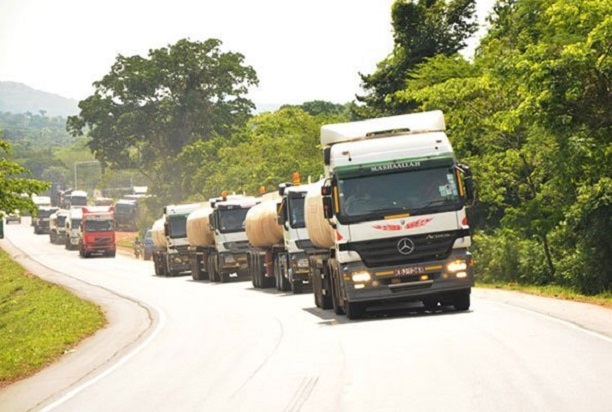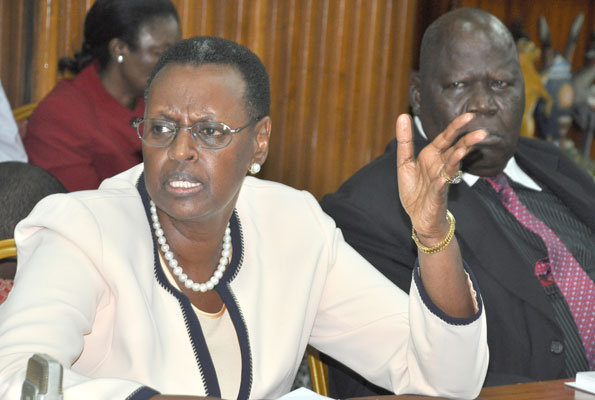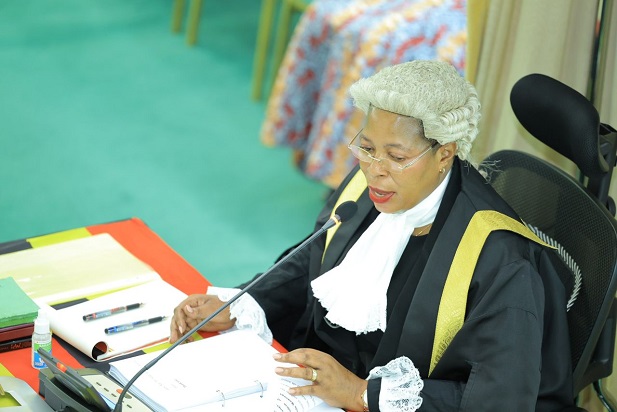There is relief in Elegu Township, Amuru district following the resumption of transportation of goods to the South Sudan capital, Juba by the Long-distance truck drivers on Tuesday.
More than 600 trucks had been parked in the Uganda-South Sudan border of Elegu in Amuru district 14-days after the long-distance truck drivers suspended travels to South Sudan in protest of armed violence on foreign drivers along the Nimule-Juba Highway.
Other trucks have been parked at Bibia Trading Centre, Kamdini and Malaba border point along the Gulu-Nimule Highway as the strike continues until a commitment is made to the demands.
By Tuesday afternoon, more than 500 trucks had been cleared and left for South Sudan, which has given a sigh of relief to officials within the different areas.
The cargo fleets from the different East African Community countries which are loaded with foodstuff and fuel among other merchandise had been parked at BLD and Rock parking yards in Elegu Township and more than 20 kilometres stretch along the Gulu-Nimule Highway.
The leadership and residents of the areas had expressed worries over poor hygiene, the outbreak of communicable diseases, COVID-19, shortage of food as well as fire outbreak from the fuel tankers due to the congestion of the truckers and their trucks.
However, following series of meetings between the truck drivers, internal ministry affairs of the different EAC bloc, security and the South Sudan authorities, the truckers agreed to resume operation following a commitment to provide security to the truckers and their cargo while inside South Sudan.
Kassim Kasule, the Elegu Township Local Chairperson says that the resumption of the travels has not only relieved them of the congestion but also restored sanity in the area.
Kasule explained that the congestion had led to poor hygiene in the area, a spike in prices of food commodities and risks of the rapid spread of the coronavirus disease since the truckers were freely mixing with the community.
Robert Onekalit, the in-charge of Elegu Port Health had also expressed fears that residents in the area were at risk of infections because the truck drivers were freely mingling with the border community.
Jacob Lukwiya, a resident of Kamdini in Oyam district where some of the trucks had been parked said the area had been experiencing poor waste disposal and a hike in prices of food commodities due to the strike that led to congestion and prompting high demands.
Sudi Mwetale, the Chairperson of Long-distance Truck Drivers Association says that the resumption followed a commitment letter from the South Sudan authorities to provide security escorts to the drivers and, disbandment of all roadblocks and clear bushes along the highway.
He explained that more trucks were still being cleared by the Ugandan and South Sudan security personnel before they travel to South Sudan.
Unknown gunmen waylaid and shot dead three Kenyans and Ugandan truck drivers in different bushes between July and August. Several others were injured while others remained unaccounted for.
In response, the truck drivers suspended travels to Juba and demanded security, compensation for the colleagues who lost their lives and Lorries burnt down by the gunmen before they could resume normal operations.
Among other demands included clearing bushes 15-meters wide on either side of the highway and removing unnecessary roadblocks used by unscrupulous security personnel to extort money from foreign drivers.
Four different meetings during the period of the strike brokered by Ugandan authorities to compel the truckers to call off the strike and resume delivery of goods to the conflict-prone country failed as the drivers demanded written commitment from the Juba administration.
On Monday, South Sudan’s Ministry of Foreign Affairs and International Cooperation Monday wrote to the embassies of Uganda and Kenya committing to providing security for foreign truckers along the Juba-Nimule highway of death.
Earlier the truckers demanded joint security by the East African Community (EAC) and IGAD citing that they are not contented with security personnel from South Sudan.
-URN





